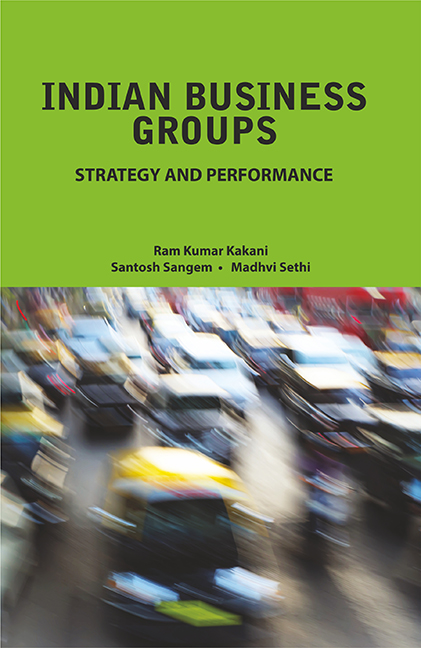Book contents
- Frontmatter
- Contents
- List of Tables and Figures
- Preface
- Acknowledgements
- 1 Introduction to Business Groups and their Strategies
- 2 Business Groups across the Globe
- 3 Product Diversification and Performance: Measurement and Historical Relationship
- 4 Conceptual Framework and Research Methodology
- 5 Empirical Results and Managerial Implications
- 6 Case Analyses of Business Groups' Strategies
- 7 Summary of the Work
- References
- Index
- About the Authors
5 - Empirical Results and Managerial Implications
Published online by Cambridge University Press: 13 July 2022
- Frontmatter
- Contents
- List of Tables and Figures
- Preface
- Acknowledgements
- 1 Introduction to Business Groups and their Strategies
- 2 Business Groups across the Globe
- 3 Product Diversification and Performance: Measurement and Historical Relationship
- 4 Conceptual Framework and Research Methodology
- 5 Empirical Results and Managerial Implications
- 6 Case Analyses of Business Groups' Strategies
- 7 Summary of the Work
- References
- Index
- About the Authors
Summary
Having identified a set of research questions in Chapter 4, we present in this chapter the answer to those research questions. For each research question raised, we present relevant regression results (in brief) of important variables and evaluate the performance−characteristics linkage of Indian business groups from Section 5.1 to Section 5.9. We discuss the empirical results further in Section 5.10 and deduce few take homes in the last two sections, i.e., 5.11 and 5.12. Throughout this chapter, we follow the following notation for significant independent variables in the regressions based on their significance:
(a) A single asterisk (*) beside the coefficient denotes significance at the 90 per cent level of confidence.
(b) Two asterisks (**) beside the coefficient denotes significance at the 95 per cent level of confidence.
(c) Three asterisks (***) beside the coefficient denotes significance at the 99 per cent level of confidence.
Shareholder value and group characteristics
Research question # 1:
What is the relationship of Indian business groups’ shareholder value creation (marketbased financial performance measure) with their diversification strategy and other group characteristics? Is the relationship between the Indian business groups’ aggregate financial performance and the product diversification strategy static, irrespective of the changes in the economic policies of the state (liberalization) and the economic cycles, facing the industry?
We had used two dependent variables for shareholder value dimension, namely Modified Tobin's Q ratio (TOBIN) and Market Price over Book Value ratio (PBV). Our regression result indicates that product diversification strategy (both related and unrelated), long-term solvency position, and size of the group were highly significant factors in determining shareholder value maximization for all the study periods. While product diversification and working capital ratios were negatively related, size of the group was positively related to shareholder value maximization. Age was negatively related to value during the pre-liberalization period only. Current ratio and international diversification were positively related to value creation in the first two periods, i.e., pre-liberalization and post-liberalization growth periods. Net exports were positively related to value creation in the post-liberalization recessionary period. We also found that leverage of a business group had no impact on Tobin's Q Ratio during any of the three periods.
Information
- Type
- Chapter
- Information
- Indian Business Groups: Strategy and Performance , pp. 112 - 168Publisher: Foundation BooksPrint publication year: 2015
